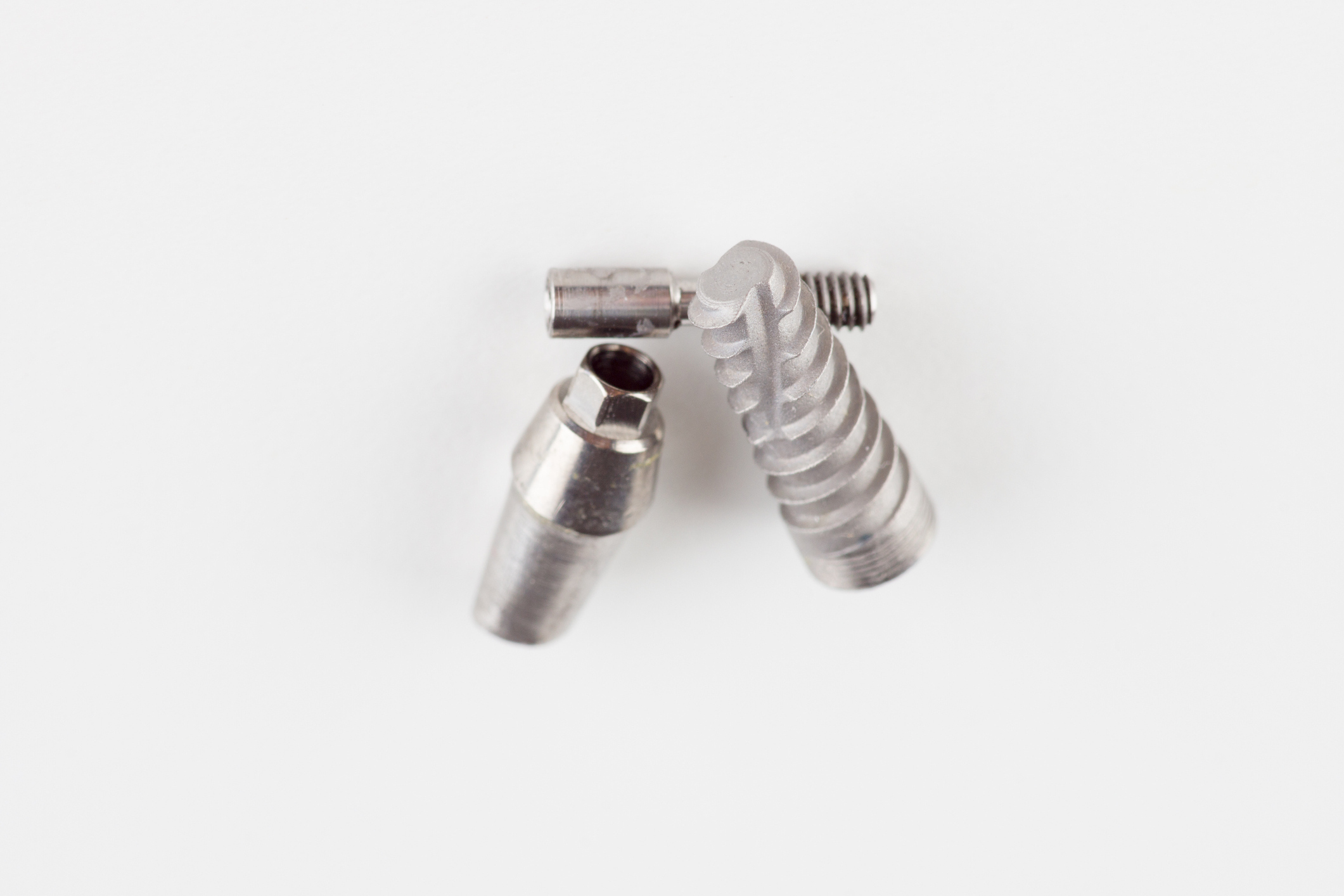
Problems with osseointegrated implants can happen. Risk is an integral part of implantology and of implant-supported rehabilitation. The risk or failure will be present and associated with implant surgery and with long-term preservation, experts say. When we talk about implants, it is important to remember the risks of lack of maintenance, peri-implantitis, mucositis, rejection and possible associated problems. However, despite eventual problems, the benefits of implant rehabilitation far outweigh any complications that may arise.
If you are considering a treatment with dental implants, you should know all about the risks and complications. This article is for information only, and is based on bibliographical sources and references. With it, we do not intend to discourage the possibility of such treatment. The goal is simply to inform about the possible risks of implant failure and to help avoid these problems through prevention.
Dental implants are the best treatment available for the rehabilitation of missing teeth. The implant is a cylindrical piece consisting of a high quality material, titanium. They give you back comfort and quality in every aspect. So the benefits outweigh the possible risks. With proper care and prevention, treatment will last for many years.
Main dental implant problems
Peri-implantitis
Peri-implantitis is the major problem related to dental implants problems. It is an infectious process that affects the soft tissues surrounding the implant. Just like our teeth, implants can cause inflammation.
Experts, through studies published in the year 2012, demonstrate the need to increase the corrosion resistance of titanium material. However, these studies also reveal the importance of implants in the choice of rehabilitation for edentulous patients and mention the high success rate.
Prof. Tomas Albrektsson collaborated with Prof. Branemark on the development of oral implants.
Branemark was the main responsible for the discovery of osseointegration. Prof. Albrektsson states, in an interview with the prestigious newspaper “Dental Tribune”, that peri-implantitis is a man-made disease based on a false similarity between teeth and implants. This means that the bone around the implant may be subject to bone resorption due to the delicate balance between osteoclasts (bone cells that cause bone resorption) and osteoblasts (bone formation cells).
Mucositis or peri-implantitis are pathologies that influence the success of implants. Mucositis is the initial stage of peri-implantitis. Mucositis denotes inflammation of the gingival tissue around the implant. If not properly treated it evolves to the so called peri-implantitis. The peri-implantitis is very similar to the gum disease, periodontitis.
Mucositis
Mucositis is one of the problems of implants. If diagnosed in its early stage, it has almost always a solution. The main symptoms are the inflammatory process of the oral mucosa around the cylindrical piece of titanium.
Symptomatology of Peri-implantitis (problems with implants)
Bone loss due to the action of osteoclasts;
Soft tissue inflammation;
The redness of the gums;
Bleeding and pain;
Finally, the implant acquires mobility and it may have to be removed.
Problems with implants : treatment and care for Peri-implantitis
Removal of bacterial plaque through professional cleaning as a preventive measure.
Bone grafting helps regenerate the tissue around the implant. It is applied to restore bone loss.
The prevention of Peri-implantitis
Routine dental visits. These annual or semi-annual visits are very important. Bone recession is not always visible to the patient; with the aid of radiography, the doctor analyses your dental structures;
Care with oral hygiene. Implants need permanent care. Like our teeth, implants require frequent brushing with the help of a soft bristled brush. Do not forget the mouthwash, the use of dental floss and the dental water jet.
Tobacco and alcohol in excess favour the appearance of mucositis, the peri-implantitis in its initial stage. Healthy lifestyle habits contribute to your implants lasting for many, many years.
If you are considering dental implants visit us for more information. The implant is the best known solution to rehabilitate your tooth loss. With the fixed treatment, you recover a functional and very pleasant smile. With proper care, treatment can last a lifetime.
References / Bibliography:
- Dental Tribune https://eu.dental-tribune.com/news/interview-peri-implantitis-may-be-a-man-made-disease/
- Bollen CM,Pappaioanno W,van Eldere J et al.The influence of abutment surface roughness on plaque accumulation and peri-implant mucositis. Clin Oral Implants Res 1996;
- Bucher A. Meyer U, Kruse – Losler B,at al. Susteined release of doxycycline for the treatment of peri-implantitis: British Journal Oral Maxillo Surgery.2003
- Claffey N, Clarke E, Polyzois I, et al. Surgical treatment of peri-implantitis. Journal Clinical Periodontology. 2008.
- Lindhe J, Berglundh T, Ericsson L, et al. Experimental breakdown of peri-implant and periodontal tissues. A study in the beagle dog. Clinical Oral Implants Research 1992, 9-16.

